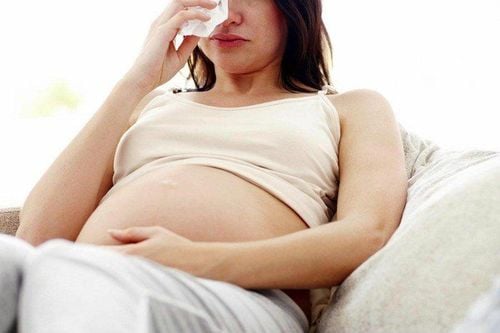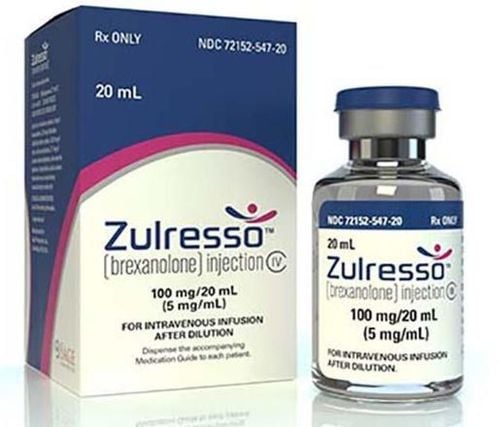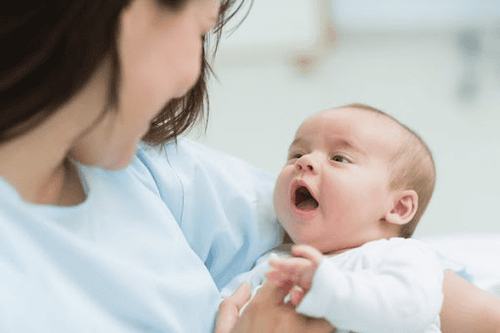This is an automatically translated article.
Hormonal fluctuations during pregnancy affect all women, but some are more susceptible to depression during pregnancy. At least 10% of pregnant women are depressed during this period.1. What is depression during pregnancy?
Depression (also called major depressive disorder, major depression, and clinical depression) is a medical condition that causes feelings of sadness and loss of interest in the things you want to do. It can affect the way you feel, think, and act and can interfere with daily life. In which, depression during pregnancy is an illness that accounts for about 10% of pregnant women.
Women are more at risk of depression during pregnancy, in the weeks and months after giving birth. During pregnancy, hormone changes can affect brain chemicals and cause depression and anxiety. Sometimes, pregnant women don't realize they're depressed.
Trắc nghiệm: Bạn có hiểu đúng về dấu hiệu mang thai sớm?
Các dấu hiệu mang thai sớm không phải chỉ mỗi trễ kinh mà còn có rất nhiều dấu hiệu khác như xuất huyết âm đạo, ngực căng tức,… Điểm xem bạn biết được bao nhiêu dấu hiệu mang thai sớm thông qua bài trắc nghiệm này nhé!
2. How to recognize depression during pregnancy?
Depression can come on slowly. Symptoms are different for each person. They can be light, medium or heavy. Signs and symptoms of depression include:Emotional changes Feeling sad, hopeless or overwhelmed Feeling restless or moody Crying a lot Feeling worthless or guilty Thinking about death or suicide (Suicide)

Changes in daily life Eating more or less than you usually do Difficulty remembering, concentrating or making decisions Unable to sleep or oversleeping Withdrawal from friends and family Loss of interest enjoying the things you normally enjoy doing Changes in your body Having no energy and feeling tired all the time Headache, stomach upset, or other aches and pains that don't go away
3. How does depression affect pregnant women?
Depression during pregnancy, in addition to bringing bad consequences for pregnant women, also greatly affects the fetus such as miscarriage, premature birth, low birth weight, and poor fetal growth. After birth, children may have delayed language development, behavioral and emotional disorders, and autism.
For pregnant women with depression, if not taken care of properly, there may be negative behaviors such as drinking, smoking, drug addiction, abortion, even suicide.
If pregnancy depression is left untreated, it can lead to postpartum depression. Postpartum depression is a serious condition that can last for many months after giving birth. It can affect your health and how well you bond with your baby.
4. How to deal with depression during pregnancy?

Simplify things: Don't think you'll be able to continue to do the same things as before you got pregnant. Always prioritize yourself on your to-do list. Instead of cleaning the house, cleaning the door, read a book, have breakfast in bed, and go for a walk in the park. Take care of yourself more.
Speak out: Talk to your best friend about what scares and worries you. Always talk to your husband openly and you will receive his sincerity.
Establish support: Negative emotions, whether expressed or not, have an effect on the unborn child. Therefore, it is important to find a sympathetic relative or friend, to help you get out of unhappy thoughts.
Relax: Pregnant women are often advised to listen to pure things so that the baby born will also have such thoughts and thoughts. To regain your composure, listen to classical music every day. Alternatively, you can spend 30 minutes thinking about good things. Rest and enough sleep also help to improve mood, fresher.
Establish healthy eating habits: Maintain a scientific lifestyle and divide many small meals, eat regularly to ensure adequate nutrition for both mother and child, and also help pregnant women feel healthy and full. vitality.
Eat dark chocolate: Research shows that eating small amounts of chocolate helps dispel depression during pregnancy. muscle relaxant and blood vessel dilation. Eating small pieces of chocolate is thought to help reduce preeclampsia syndrome.
Regular exercise: Regular practice and yoga practice both help keep fit and help develop mentally in a positive direction. If guided by a professional yoga practitioner, pregnant women will be better prepared for labor and less stressed.
Please dial HOTLINE for more information or register for an appointment HERE. Download MyVinmec app to make appointments faster and to manage your bookings easily.













